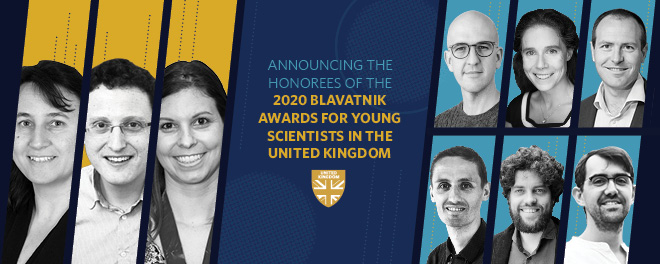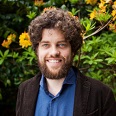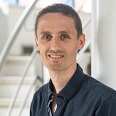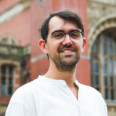
Largest unrestricted prize for young scientists awards US$300,000 (£225,000) to Laureates in Life Sciences, Physical Science & Engineering and Chemistry
Additional US$180,000 (£135,000) awarded to six Finalists—two in each category
Leading UK institutions are home to Laureates and Finalists: University of Oxford, University College London, University of York, Imperial College London, University of Exeter, University of Birmingham, University of Southampton, and the UK Atomic Energy Authority
London, UK: The Blavatnik Family Foundation and the New York Academy of Sciences today announced the Laureates and Finalists of the 2020 Blavatnik Awards for Young Scientists in the United Kingdom, the largest unrestricted cash prizes available to scientists under the age of 42.
This year’s winners are Professor Timothy Behrens (Life Sciences), Dr Kirsty Penkman (Chemistry) and Professor Claudia de Rham (Physical Sciences & Engineering), who will each receive US$100,000 (£75,000). In each of the three categories—Life Sciences, Physical Sciences & Engineering and Chemistry—a jury of leading scientists from across the UK also selected two Finalists, who will receive US$30,000 (£23,000) apiece.
The three Laureates and six Finalists are recognised for their innovative discoveries ranging from microbubble engineering and clean energy development to the discovery of new planets and advances in medicine, physics and fossil dating. Despite being still in the early stages of their careers, their research is already changing science and our understanding of the world.
“The UK has cultivated much of the world’s leading scientific talent,” commented Sir Leonard Blavatnik, Founder and Chairman of Access Industries and the Blavatnik Family Foundation, and member of the President’s Council of the New York Academy of Sciences. "We are incredibly proud to elevate these select scientists to an international stage that will enable them to be recognised globally, prepare them to become world-class leaders in their scientific fields, and propel the wheel of innovation and societal progress."
One Laureate who is already driving her field forward is Imperial College London Professor Claudia de Rham, who has constructed a viable theory for massive gravity that could hold the answers to many important questions in physics. The winner in Chemistry is Dr Kirsty Penkman from the University of York, whose improvements in the accuracy of fossil dating could lead to a new understanding of human evolution and climate change. In the field of Life Sciences, Professor Timothy Behrens, who works at both the University of Oxford and University College London has developed innovative models for mapping the brain’s electrical signals that have significant implications for brain surgery, the treatment of mental disorders, and artificial intelligence.
Finalists include Professor Eleanor Stride of the University of Oxford, who is using radical microbubble technology to develop more effective cancer treatments, and Professor Ian Chapman who is at the forefront of atomic energy research, leading the UK’s efforts to create clean and efficient nuclear power as the CEO of the UK Atomic Energy Authority. Other Finalists include Dr Amaury Triaud of the University of Birmingham, who discovered a new exoplanet system, and Professors Matthew Fuchter (Imperial College London), Edze Riens Westra (University of Exeter), and Stephen Goldup (University of Southampton), whose groundbreaking work could lead to myriad improvements in medicine. Full details of all Laureates and Finalists can be found below.
Ellis Rubinstein, President of the New York Academy of Sciences and Chair of the Awards’ Scientific Advisory Council noted, “With over 13 years’ experience independently administering the Blavatnik Awards for Young Scientists in the US, the UK, and Israel, our Academy has seen first-hand how they have changed the lives of young scientists. Many recipients have gone on to receive other prestigious accolades, and some have even mentored the next generation of Blavatnik Scholars. These awards have given these young scientists the confidence to take big risks in their research—and to reap the rewards that come with thinking big.”
Now in their third year, the 2020 Blavatnik Awards for Young Scientists in the UK received 80 nominations from 41 academic and research institutions across the UK. The UK awards sit alongside their global counterparts, the Blavatnik National Awards in the United States and the Blavatnik Awards in Israel, all of which honour and support exceptional early-career scientists at lecturer level and above. To date, $8.89m (£6.65m) has been awarded to 291 young scientists in the US, Israel, and the UK. 60 per cent of recipients are immigrants to the country in which they were recognised, hailing from 47 countries on six continents.
The 2020 Blavatnik Awards in the UK Laureates and Finalists will be honoured at a black-tie gala dinner and ceremony at Banqueting House in London on 4 th March 2020.
The following day, on 5th March 2020, the honourees will present their research with a series of short, interactive lectures at a public symposium. The event, Game Changers: 9 Young Scientists Transforming Our World, will be held at Banqueting House in London from 11am to 6pm, and includes a reception, during which attendees can meet the honourees. The event is free and open to the public. To attend the symposium, go to NYAS.org/youngscientists2020 to register.
To follow the progress of the Blavatnik Awards, please visit the Awards’ website or follow us on Facebook and Twitter (@BlavatnikAwards).
For media requests, please contact:
Kamala Murthy - kmurthy@nyas.org; +1-212-298-3740
Tom Mitchener - Tom.Mitchener@hkstrategies.com; +44 20 7413 3764.
For further information about the 2020 Laureates and Finalists, the Blavatnik Family Foundation, and the New York Academy of Sciences, please see below.
About the Laureates
Life Sciences
 Professor Timothy Behrens, University of Oxford and University College London (UCL)
Professor Timothy Behrens, University of Oxford and University College London (UCL)
Timothy Behrens, DPhil, seeks to solve a fundamental mystery of the brain: how do the electrical signals in our brain control our behaviour? To do this, he builds computer models and measures brain signals in humans and animals. His research reveals basic knowledge about the human brain and has translational implications for how doctors are guided while performing brain surgery, how computer scientists design artificial intelligence systems, and how we research mental and cognitive disorders.
Chemistry
 Dr Kirsty Penkman, University of York
Dr Kirsty Penkman, University of York
Kirsty Penkman, PhD, leads a research program that has made tremendous advances in our ability to accurately date ancient fossils. A variety of methods currently exist for dating ancient objects, but beyond approximately 50,000 years, dating is very challenging. By carefully refining a technique called amino acid racemization, Penkman has extended this upper limit and successfully dated fossils more than 3 million years old, opening up a time window to help scientists better understand human evolution and climate change.
Physical Sciences & Engineering
 Professor Claudia de Rham, Imperial College London
Professor Claudia de Rham, Imperial College London
Claudia de Rham, PhD,has completed a decades-old quest to construct a rigorous and viable theory of massive gravity—a theory of physics that modifies Einstein’s theory of general relativity to explain the nature of gravity. de Rham’s innovative solutions provide a potential explanation for why the universe is expanding faster and faster, and also has profound implications for the answers to other important questions in physics, such as the search for new types of particles in the universe.
About the Finalists
Life Sciences
 Professor Eleanor Stride, University of Oxford
Professor Eleanor Stride, University of Oxford
How can you guide drugs and other therapeutics to reach specific parts of the human body? Eleanor Stride, PhD, develops synthetic microbubbles that act as tiny vehicles to carry specific compounds throughout the body. Her innovative technology aims to revolutionise the treatment of cancer: microbubble delivery of cancer drugs has the potential to eliminate common side effects of cancer treatment, including hair loss, nausea, and a weakened immune system, and by delivering drugs just where they are needed, it is possible to attack tumours without harming healthy cells.
 Professor Edze Rients Westra, University of Exeter
Professor Edze Rients Westra, University of Exeter
Edze Westra, PhD, studies how bacteria protect themselves from virus attacks—information we can use to develop alternatives to conventional antibiotics. By investigating the well-known bacterial immune system, CRISPR-Cas, he has laid the necessary groundwork for the development of strategies to circumvent antibiotic resistance, aiding in the development of novel antibiotics and next generation bacteria-enabled therapeutics.
Chemistry
 Professor Matthew Fuchter, Imperial College London
Professor Matthew Fuchter, Imperial College London
Matthew Fuchter, PhD, leads a multifaceted research group that uses a detailed understanding of molecular structural design to invent novel molecules and materials. His research has shown the potential to significantly alter the properties of carbon-based electronics, such as organic light-emitting diodes (OLEDs), as well as define novel therapeutic approaches for the treatment of diseases ranging from malaria to cancer.
 Professor Stephen Goldup, University of Southampton
Professor Stephen Goldup, University of Southampton
Stephen Goldup, PhD, is a synthetic chemist who has developed elegant methods for the construction of “mechanically interlocked molecules.” These are molecules that consist of two or more smaller molecules threaded through one another, rather than joined together by chemical bonds. This arrangement makes interlocked molecules very flexible and creates cavities that can be exploited in novel applications, such as to create new catalysts or novel materials.
Physical Sciences & Engineering
 Professor Ian Chapman, UK Atomic Energy Authority and Culham Centre for Fusion Energy
Professor Ian Chapman, UK Atomic Energy Authority and Culham Centre for Fusion Energy
Ian Chapman, PhD, is an international leader in developing renewable energy from nuclear fusion, the same mechanism that powers the Sun and other stars. By designing the device at the center of the world’s largest fusion project, his work is speeding up progress towards one day delivering practical and reliable fusion energy to the world. He also leads the UK’s new national fusion energy project, as CEO of the UK Atomic Energy Authority.
 Dr Amaury Triaud, University of Birmingham
Dr Amaury Triaud, University of Birmingham
We have all wondered if life exists in the universe beyond our solar system. Amaury Triaud, PhD, is an astrophysicist searching for exoplanets—planets orbiting stars other than the Sun—and has made major contributions to the discovery of a planetary system known as TRAPPIST-1. Of all the planetary systems discovered beyond our own, this has the most promising physical conditions to support life as we know it. In addition, he has pioneered the study of exoplanets that surround two stars instead of one, revealing profound new clues for understanding the formation and evolution of planets.
About the Blavatnik Family Foundation
The Blavatnik Family Foundation is an active supporter of world-renowned educational, scientific, cultural, and charitable institutions in the United States, the United Kingdom, Israel, and throughout the world. The Foundation is headed by Sir Leonard Blavatnik, a global industrialist and philanthropist and the founder and chairman of Access Industries, a privately-held industrial group based in the US with global strategic interests in natural resources and chemicals, media and telecommunications, real estate, venture capital/technology, entertainment, biotechnology, and selected external funds. See more at www.blavatnikfoundation.org.
About the New York Academy of Sciences
The New York Academy of Sciences is an independent, not-for-profit organisation that since 1817 has been committed to advancing science, technology, and society worldwide. With more than 20,000 Members in 100 countries around the world, the Academy is creating a global community of science for the benefit of humanity. The Academy's core mission is to advance scientific knowledge, positively impact the major global challenges of society with science-based solutions, and increase the number of scientifically informed individuals in society at large. Please visit us online at www.nyas.org.
To follow the progress of the Blavatnik Awards, please visit www.blavatnikawards.org or follow us on Facebook and Twitter (@BlavatnikAwards).
###